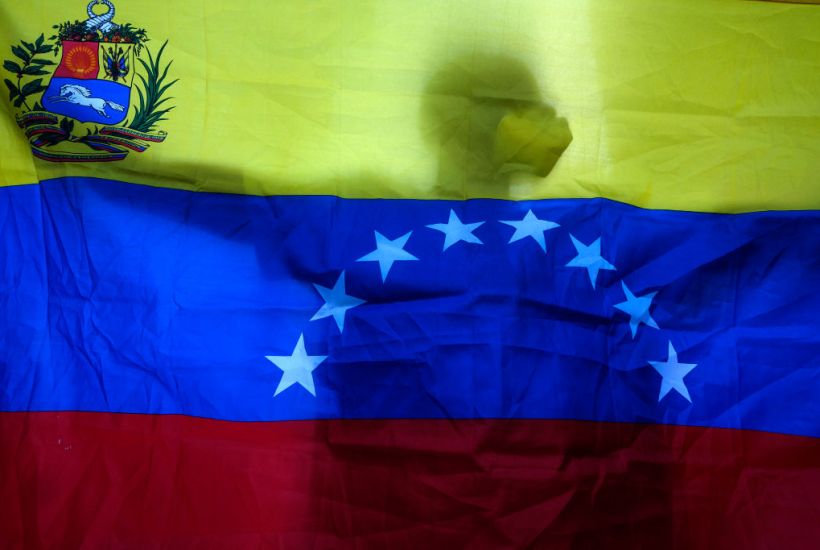Amid New Year celebrations, and a tide of high-profile obituaries, you might have missed something small and far away, but nonetheless significant. The opposition in Venezuela has dissolved its government-in-pretence. By 72 votes to 29, the country’s national assembly voted its parallel government out of existence.
Juan Guaidó can no longer say that he is Venezuela’s legitimate president-in-waiting. Venezuela has, for many years, been a basket case. A country with immense natural resources and an energetic population, it has long languished in poverty. Many have starved, millions have fled, disease and distemper have stalked the land – and, as always in dictatorial societies where economic woes translate into popular discontent, savage brutality has been issued down from on high.
Venezuelans truly deserve a better government than the one they have been saddled with
This brutality meant baton charges and tear gas for protestors, murder for perceived political enemies, and, in political terms, the complete repudiation of the Venezuelan constitution by the country’s dictator, Nicolas Maduro.
In 2017, after growing protests, and arrests of opposition leaders, the Venezuelan supreme court dissolved the country’s parliament. In its place, it fabricated a new constituent assembly stuffed with regime loyalists. A presidential election the following year was, according to the opposition, entirely rigged in Maduro’s favour.
These two things led to a case being made that, if the constitution was still in force, the presidency should fall to the speaker of the national assembly, a young politician called Juan Guaidó. He held a rally in January 2019 in which he took the oath of office and declared himself the acting president.
Quite surprisingly, a fairly large number of foreign countries went along with this declaration. The United States under Donald Trump was in one of its spasmodic periods of disliking foreign dictators, and Maduro was briefly top of the list.
Other countries could see the justice in Guaidó’s claims. Maduro had, by dissolving the parliament and faking an election, in effect executed two coups in quick succession. If the constitution meant anything, his rule was no longer legitimate.
For some time, there was speculation that the military might see the writing on the wall and no longer carry out Maduro’s orders. To put it mildly, this was optimistic. The military brass was too well paid by the regime to give up now – and risked hanging from lampposts if the dictator fell. And, of course, Maduro could always count on the world’s dictators for assistance, with countries as diverse as Russia, China, Turkey and others lending him a helping hand.
Guaidó embarked on a world tour to press his claim. He did his best. But it did not work. His trips to Washington made him seem less the president of a legitimate government than the errand boy returning to his masters for a pat on the head. Guaidó had considerably overrated American resolve and interest. He had mistaken an anti-Maduro fit of pique from president Trump for a real endorsement.
John Bolton, who was at that time US national security advisor, subsequently wrote at length about the debacle. In a long, anguished chapter in his memoir, Bolton describes a president and an administration which had no idea what they wanted to happen, had no means of achieving anything, and cared very little for the people of Venezuela in any case.
Maduro won by securing the army leadership and the country’s economy, by banking support from all manner of foreign tyrants, and by simply waiting the shambles in Washington out. He was able to consolidate his hold on power even amid a vast outpouring of refugees, continual threats of famine, and general poverty and privation.
Guaidó’s bid for office was always likely to fail. Americans have for most of this century considered themselves out of the government-toppling game. Trump acted very strangely by trying to have Venezuelans get rid of Maduro themselves, in the teeth of a well-armed and brutal dictatorship.
This was always an overcooked plan. It was quietly side-lined fast, and has been entirely forgotten since Joe Biden assumed office. New crises have come to the fore; and now America is buying Venezuelan hydrocarbons at a rapid and consistent rate.
That’s how it goes, you could say. Guaidó was a dreamer; the Americans led him on; and that’s that. But it’s actually a sadder story. Venezuelans truly deserve a better government than the one they have been saddled with.
And let us not forget, a superpower screwing up its response to one country tends to have effects elsewhere. As I predicted in another magazine quite a while ago, America’s abject failure to have a policy for Venezuela had wider effects. It led to a very similar response to blatant election fraud and mass-repression of protests in Belarus a year later. What could have been an opportunity to blunt a Russian puppet regime – from which one axis of the 2022 invasion of Ukraine was launched – instead produced slogans, nonsense, and little of value.
It also set the tone for the failures which unnecessarily collapsed the Afghan government in 2021, and still exercises baleful influence over US policy for Ukraine.
The United States habitually under- and overrates its capacity in foreign affairs. Knocking over a Middle Eastern government and building a stable new one: that’s the work of a weekend, maybe a month, according to planners after 9/11. Sending Ukraine, an ally with a stable government, a few aircraft – why, that could take years, but only if we started in February, which we did not.
As the experiment in democracy in Venezuela peters out, perhaps the geniuses in Washington can try to learn more than one lesson from yet another thing they tried and failed to do.
Got something to add? Join the discussion and comment below.
Get 10 issues for just $10
Subscribe to The Spectator Australia today for the next 10 magazine issues, plus full online access, for just $10.



















Comments
Don't miss out
Join the conversation with other Spectator Australia readers. Subscribe to leave a comment.
SUBSCRIBEAlready a subscriber? Log in